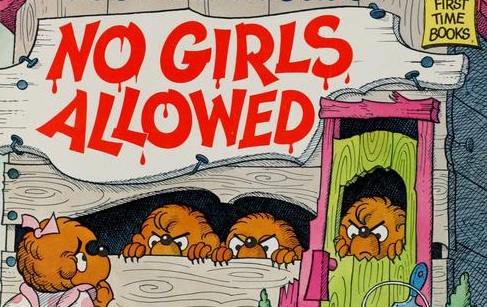I know that sentiment seems a bit prematurely pessimistic when you look at how much money was spent on video games and gaming hardware last year (approximately $25.1 billion, according to the Entertainment Software Association). Even as the global economy has suffered, the gaming industry has continued to flourish. But let’s put things into context. Here’s a quote from a 2009 Ars Technica article addressing industry growth:
It’s also worth nothing that the best selling titles of the year are a selection of sequels and entries into well-worn territory; publishers increasingly want to make the safe bets with franchises they know gamers want. We may complain about the glut of sequels and updates, but the truth is we complain with our mouths only to buy with our wallets. Looking at the greater market, gamers are being given what they want.
That may seem like good news for you, Herbert, since you’re happy with what you’re getting. But stick with me. The ESA also reports that of the games purchased last year, seventy-six percent were family or teen-friendly titles. That means stuff like lighthearted platformers and dance games. Know what the top selling game of 2010 was? Wii Sports. Yes, that’s right, that bowling game you can play with your grandma. It was released in 2006.
“But hey!” I imagine you saying. “Go back to that list of top-selling games. There’s a mess of FPSs there. They seem to be doing just fine.” You’re right. Shooters are selling well for now. But you know gamers as well as I do, Herbert. Gamers are the most boredom-prone creatures on the planet, and the FPSs that are big now are franchises that have been around for a long time. How many other fresh-faced FPSs have crashed and burned in the attempt to become the next Call of Duty or Halo? And though CoD and Halo are doing well now, how long can developers realistically keep milking those titles? If you were a developer, would you continue pumping money towards breaking into an aging genre? Or would you spend your money on something a bit safer?
I mean, it’s pretty easy to follow the logic. If the hardcore market is currently dominated by established series, and new hardcore games don’t make much money, then more money will go towards developing the things that are selling. If you followed E3 this year, then you saw the same thing I did: motion-capture gimmicks, endless sequels, and a whole lot of chatter about social networking features. If you want development efforts to continue to go into hardcore games, then hardcore games need more of an audience.
Do you see where I’m going with this?
Now, of course, there’s no way we’re going to see hardcore gaming disappear in the next year, or even in the next ten years. What I’m talking about is long-term sustainability. There are already little flickers of change within the industry. A recent survey of UK game studios reflected a lot of nervousness about the future of console and PC gaming, alongside near universal agreement that casual and mobile gaming would continue to be on the rise. It’s easy to see why; FarmVille developer Zynga is currently worth billions, and more people are choosing to game on their phones or tablets than purchase hand-held gaming devices. Meanwhile, there’s a growing trend of high-level game devs going indie in order to make the games that they really care about, rather than remain a cog the corporate machine. I think the indie scene is marvelous, but I still love the polish and epic scale that comes out of the big studios. You can’t make Mass Effect or Deus Ex on an indie budget, and I don’t want those kind of games to go away any more than you do. But if we don’t get more people into hardcore gaming, I don’t see it as a business model that too many companies will keep hanging onto in the long run.
You might be feeling skeptical at this point. I might seem like I’m running around the barnyard, freaking out about the sky falling. If so, I ask you to consider the rise and fall of the arcade game. From start to finish, it took twenty years. It’s inevitable that games will evolve as technology changes. However, we, the almighty consumers, have the power to help determine the direction that evolution will take.
So, Herbert, if you like the kind of games you have now, then that is precisely why you should care about women gamers. Women already make up forty-two percent of the gaming market, but right now, devs seem to think we only want social and casual games. That’s what’s being marketed towards us. That’s where the money is. If you really only care about getting games that you like, then it’s in your best interest to get as many people as possible on board in order to keep those games alive. And that means bringing in us women-folk.
Honestly, it won’t take much. You don’t need to worry about any dramatic changes. All we really need are characters we can relate to, stories that appeal to us, and marketing teams that remember we exist. Oh, and a more inclusive attitude from certain male quarters of the gaming community would go a long way, too (ahem).
We’ve got a common love here, Herbert. I think we can work together on this.
Becky Chambers is a freelance writer and a full-time geek. She blogs over at Other Scribbles.









Published: Oct 13, 2011 12:33 pm